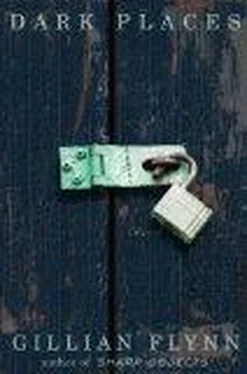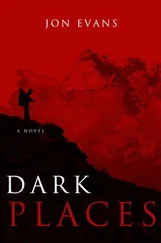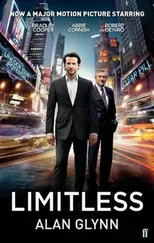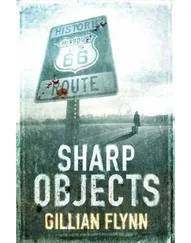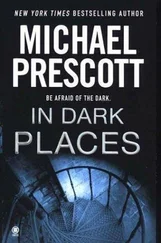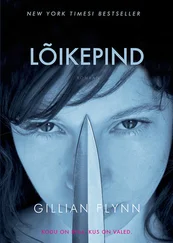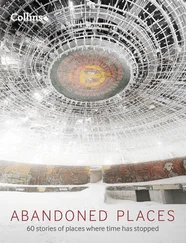Gillian Flynn - Dark Places
Здесь есть возможность читать онлайн «Gillian Flynn - Dark Places» весь текст электронной книги совершенно бесплатно (целиком полную версию без сокращений). В некоторых случаях можно слушать аудио, скачать через торрент в формате fb2 и присутствует краткое содержание. Жанр: Старинная литература, на русском языке. Описание произведения, (предисловие) а так же отзывы посетителей доступны на портале библиотеки ЛибКат.
- Название:Dark Places
- Автор:
- Жанр:
- Год:неизвестен
- ISBN:нет данных
- Рейтинг книги:5 / 5. Голосов: 1
-
Избранное:Добавить в избранное
- Отзывы:
-
Ваша оценка:
- 100
- 1
- 2
- 3
- 4
- 5
Dark Places: краткое содержание, описание и аннотация
Предлагаем к чтению аннотацию, описание, краткое содержание или предисловие (зависит от того, что написал сам автор книги «Dark Places»). Если вы не нашли необходимую информацию о книге — напишите в комментариях, мы постараемся отыскать её.
Dark Places — читать онлайн бесплатно полную книгу (весь текст) целиком
Ниже представлен текст книги, разбитый по страницам. Система сохранения места последней прочитанной страницы, позволяет с удобством читать онлайн бесплатно книгу «Dark Places», без необходимости каждый раз заново искать на чём Вы остановились. Поставьте закладку, и сможете в любой момент перейти на страницу, на которой закончили чтение.
Интервал:
Закладка:
I PUT ONa skirt and blouse for the meeting, feeling dwarfy, my grown-up, big-girl clothes never quite fitting. I’m barely five foot— four foot, ten inches in truth, but I round up. Sue me. I’m thirty-one, but people tend to talk to me in singsong, like they want to give me fingerpaints.
I headed down my weedy front slope, the neighbor’s red dog launching into its busybody barking. On the pavement near my car are the smashed skeletons of two baby birds, their flattened beaks and wings making them look reptilian. They’ve been there for a year. I can’t resist looking at them each time I get in my car. We need a good flood, wash them away.
Two elderly women were talking on the front steps of a house across the street, and I could feel them refusing to see me. I don’t know anyone’s name. If one of those women died, I couldn’t even say, “Poor old Mrs. Zalinsky died.” I’d have to say, “That mean old bitch across the street bit it.”
Feeling like a child ghost, I climbed into my anonymous midsized car, which seems to be made mostly of plastic. I keep waiting for someone from the dealership to show up and tell me the obvious: “It’s a joke. You can’t actually drive this. We were kidding.” I trance-drove my toy car ten minutes downtown to meet Jim Jeffreys, rolling into the steakhouse parking lot twenty minutes late, knowing he’d smile all kindly and say nothing about my tardiness.
I was supposed to call him from my cell phone when I arrived so he could trot out and escort me in. The restaurant—a great, old-school KC steakhouse—is surrounded by hollowed-out buildings that concern him, as if a troop of rapists was permanently crouched in their empty husks awaiting my arrival. Jim Jeffreys is not going to be The Guy Who Let Something Bad Happen to Libby Day. Nothing bad can happen to BRAVE BABY DAY, LITTLE GIRL LOST, the pathetic, red-headed seven-year-old with big blue eyes, the only one who survived the PRAIRIE MASSACRE, the KANSAS CRAZE-KILLINGS, the FARMHOUSE SATAN SACRIFICE. My mom, two older sisters, all butchered by Ben. The only one left, I’d fingered him as the murderer. I was the cutie-pie who brought my Devil-worshiping brother to justice. I was big news. The Enquirer put my tearful photo on the front page with the headline ANGEL FACE.
I peered into the rearview mirror and could see my baby face even now. My freckles were faded, and my teeth straightened, but my nose was still pug and my eyes kitten-round. I dyed my hair now, a white-blonde, but the red roots had grown in. It looked like my scalp was bleeding, especially in the late-day sunlight. It looked gory. I lit a cigarette. I’d go for months without smoking, and then remember: I need a cigarette. I’m like that, nothing sticks.
“Let’s go, Baby Day,” I said aloud. It’s what I call myself when I’m feeling hateful.
I got out of the car and smoked my way toward the restaurant, holding the cigarette in my right hand so I didn’t have to look at the left hand, the mangled one. It was almost evening: Migrant clouds floated in packs across the sky like buffalo, and the sun was just low enough to spray everything pink. Toward the river, between the looping highway ramps, obsolete grain elevators sat vacant, dusk-black and pointless.
I walked across the parking lot all by myself, atop a constellation of crushed glass. I was not attacked. It was, after all, just past 5 p.m. Jim Jeffreys was an early-bird eater, proud of it.
He was sitting at the bar when I walked in, sipping a pop, and the first thing he did, as I knew he would, was grab his cell phone from his jacket pocket and stare at it as if it had betrayed him.
“Did you call?” he frowned.
“No, I forgot,” I lied.
He smiled then. “Well, anyway. Anyway, I’m glad you’re here, sweetheart. Ready to talk turkey?”
He slapped two bucks on the bartop, and maneuvered us over to a red leather booth sprouting yellow stuffing from its cracks. The broken slits scraped the backs of my legs as I slid in. A whoof of cigarette stink burped out of the cushions.
Jim Jeffreys never drank liquor in front of me, and never asked me if I wanted a drink, but when the waiter came I ordered a glass of red wine and watched him try not to look surprised, or disappointed, or anything but Jim Jeffreys–like. What kind of red? the waiter asked, and I had no idea, really—I never could remember the names of reds or whites, or which part of the name you were supposed to say out loud, so I just said, House . He ordered a steak, I ordered a double-stuffed baked potato, and then the waiter left and Jim Jeffreys let out a long dentist-y sigh and said, “Well, Libby, we are entering a very new and different stage here together.”
“So how much is left?” I asked, thinking saytenthousandsayten thousand .
“Do you read those reports I send you?”
“I sometimes do,” I lied again. I liked getting mail but not reading it; the reports were probably in a pile somewhere in my house.
“Have you listened to my messages?”
“I think your cell phone is messed up. It cuts out a lot.” I’d listened just long enough to know I was in trouble. I usually tuned out after Jim Jeffreys’ first sentence, which always began: Your friend Jim Jeffreys here, Libby …
Jim Jeffreys steepled his fingers and stuck his bottom lip out. “There is 982 dollars and 12 cents left in the fund. As I’ve mentioned before, had you been able to replenish it with any kind of regular work, we’d have been able to keep it afloat, but …” he tossed out his hands and grimaced, “things didn’t work out that way.”
“What about the book, didn’t the book … ?”
“I’m sorry, Libby, the book did not. I tell you this every year. It’s not your fault, but the book … no. Nothing.”
Years ago, to exploit my twenty-fifth birthday, a publisher of self-help books asked me to write about how I’d conquered the “ghosts of my past.” I had in no way conquered much of anything, but I agreed to the book anyway, talking over the phone with a woman in New Jersey who did the actual writing. The book came out at Christmas time, 2002, with a cover photo of me sporting an unfortunate shag haircut. It was called, Brand New Day! Don’t Just Survive Childhood Trauma—Surpass It! and it included a few childhood snapshots of me and my dead family, packed between two hundred pages of gloppy, positive-thinking porridge. I was paid $8,000, and a smattering of survivors’ groups invited me to speak. I flew to Toledo for a meeting of men who’d been orphaned young; to Tulsa for a special gathering of teenagers whose moms had been killed by their dads. I signed my book for mouth-breathing kids who asked me jarring questions, like did my mom cook pies. I signed the book for gray, needful old men peering at me from behind bifocals, their breath blasting burnt coffee and stomach acid. “Start a New Day!” I’d write or “A New Day Awaits!” How lucky to have a pun for a last name. The people who came to meet me always looked exhausted and desperate, standing uncertainly near me in loose packs. The groups were always small. Once I realized I wasn’t getting paid for any of this, I refused to go anywhere. The book had already bombed anyway.
“It seems like it should have made more money,” I mumbled. I really wanted the book to make money, in an obsessive childish way—that feeling that if I wanted it enough, it should happen. It should happen.
“I know,” Jim Jeffreys said, having nothing more to say on the subject after six years. He watched me drink my wine in silence. “But in a way, Libby, this presents you with a really interesting new phase of your life. I mean, what do you want to be when you grow up?”
Читать дальшеИнтервал:
Закладка:
Похожие книги на «Dark Places»
Представляем Вашему вниманию похожие книги на «Dark Places» списком для выбора. Мы отобрали схожую по названию и смыслу литературу в надежде предоставить читателям больше вариантов отыскать новые, интересные, ещё непрочитанные произведения.
Обсуждение, отзывы о книге «Dark Places» и просто собственные мнения читателей. Оставьте ваши комментарии, напишите, что Вы думаете о произведении, его смысле или главных героях. Укажите что конкретно понравилось, а что нет, и почему Вы так считаете.
